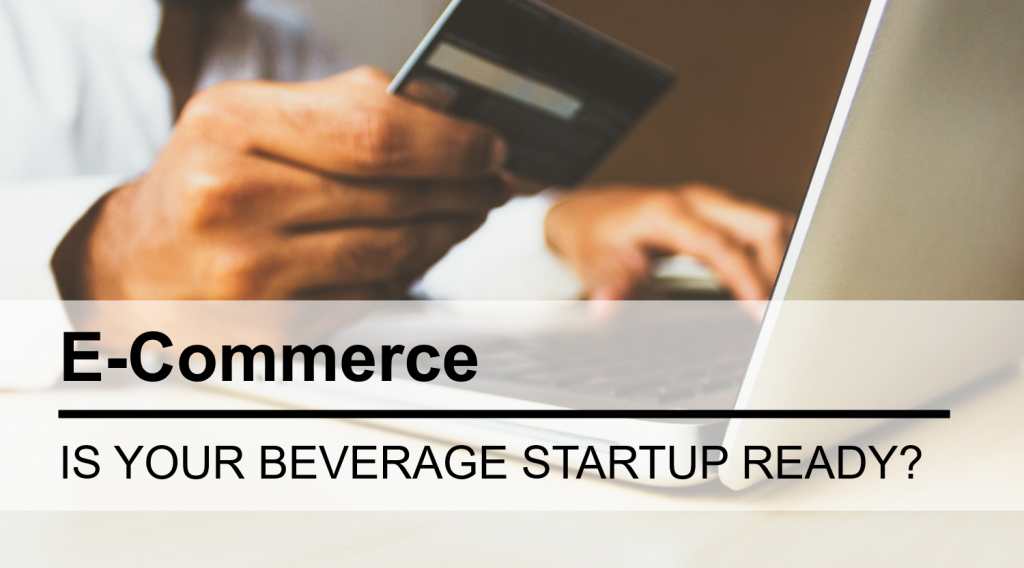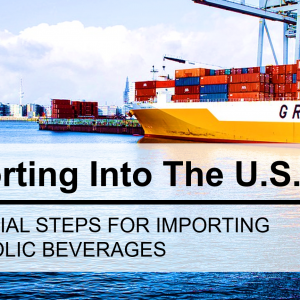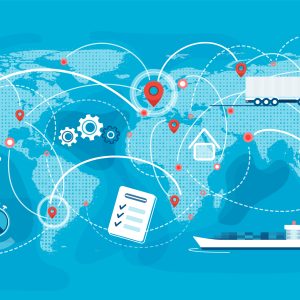All eyes are on e-commerce right now. The COVID-19 pandemic has disrupted the shopping habits of most of the world, pushing more consumers to browse online instead of roaming store aisles. Online grocery, in particular, saw a tremendous surge. Before COVID-19, just 3% of U.S. grocery spending was online. CNBC reports that Bain & Company consultants found that number jumped to 15% at the height of the pandemic.
While not all consumers will continue to buy online, analysts predict online sales will make up a much more significant portion of grocery sales than previously thought. What does this mean for early-stage beverage companies? There are some essential steps new beverage companies can take to prepare for success online.
Prioritize E-commerce Early
Beverage entrepreneurs have a lot to think about and can dismiss the importance of incorporating e-commerce in their strategy early-on. They may plan to add channels once they are further along and have established traditional retail sales. According to Florent Hacq, Founder of Acwire, a UK-based consulting agency that helps consumer brands with Amazon and e-commerce, waiting to include an online strategy is a mistake.
“E-commerce has a lot of potential for early-stage beverage brands,“ Hacq says. “You can communicate directly with customers and get data to inform future iterations of your products.”
Elliot Begoun, Founder of TIG, a 1:1 customized accelerator helping natural product brands grow and become nimble, capital-efficient, and resilient, agrees that beverage startups should prioritize being online.
“E-commerce has democratized the opportunity for customers to find brands,” says Begoun. “They want to know about the companies behind products, and are more active in the purchase process than ever. We advise all the brands we work with to be e-commerce enabled.”
One of the biggest factors in determining your beverage’s success online is how quickly you make it a priority in your business planning.
Design for Online
To win online, your product, packaging, and logistics should match the opportunities and constraints of e-commerce channels. That means designing a product that can be packaged, stored, shipped, and marketed in different ways than those required by traditional retail channels.
“One of the biggest constraints for beverages is their weight,” says Hacq. “While it may be cost-prohibitive to ship individual products, it is possible to design a beverage product and strategy that make sense for e-commerce. It’s all about packsize and multiples. ”
From different pack-sizes and configurations to new formulations like powders or tablets, there are models that work, depending on how and where you want to drive your business.
How you design your network of third-party logistics providers (3PL) also plays a role in your beverage’s ability to succeed online.
“One successful strategy is to move a majority of your freight when it’s the densest,” says Begoun. “If you can geo-target and push your logistics closer to the customer, that will drive down your costs to serve.”
There is no one right way to design a beverage that will sell online, but knowing what additional factors to consider in the planning process will increase your probability of success.
Choose Channels That Fit Your Customer
The online channels you choose should align with your customer’s journey from awareness to consideration and purchase. When asked if a company should choose Amazon or their own e-commerce site, Hacq says both, and maybe more.
“At the end of the day, you want to offer customers different options,” says Hacq. “They may buy directly from your website if you offer specific incentives, or they might want to add your product to their shopping cart when they’re buying other groceries from an e-commerce platform. The idea is to be where the customer is.”
Begoun tells his clients to think about touchpoints on the customer continuum and how their brand can show up at each stage.
“Whether a customer sees your product on retail shelves, on a corporate campus, at an event venue, or when they’re scrolling social media, they should have a similar experience with your brand,” says Begoun.
Finding the right mix of online and offline opportunities means matching your strategy with your customer, product, and brand.
Dig In and Generate Demand
No matter what channels or strategy you choose, you have to work at building demand. Being present online isn’t enough; you are responsible for the content and ad campaigns that drive sales.
“I tell clients that when they first list a product on Amazon, it doesn’t appear high in the search rankings, which is like having your product at the back of the store on the lowest shelf, where nobody can see it,” says Hacq. “Being successful on Amazon requires a real focus on search engine optimization the same way you would do with Google. E-commerce is different that way.”
Part of success online is understanding things like keywords and how to get your product on the first page of search results. Brands also need to invest in content and images to drive conversions.
Driving product trials online is another challenge. “Generally, e-commerce price points are higher because you have to ship more,” says Begoun. “Asking consumers to spend $30-$40 before trying the product can be scary for them.”
Begoun suggests considering a hybrid approach, allowing people to try the product in a yoga studio or other local venue.
The bottom line is that your brand’s online success will depend on the attention and resources you dedicate to optimizing the channels you choose.
Focus and Find Help
While there is a temptation to try everything, quality and commitment are more important than quantity when it comes to showing up online.
“The most successful brands tend to focus on a few things and do them very well,” says Hacq. “You have to prioritize.”
It’s also important not to go it alone. Begoun brings in e-commerce experts to work with brands as part of his accelerator program.
“Focusing too much on something outside of your wheelhouse can pull you away from being effective at the rest of your business,” says Begoun. “Surround yourself with people who know it and live it.”
Another benefit of working with specialists is the insights they bring from a variety of companies and categories.
There’s never been a better time for beverage brands to dive into the world of e-commerce. While planning is critical, the most crucial step is getting started.


